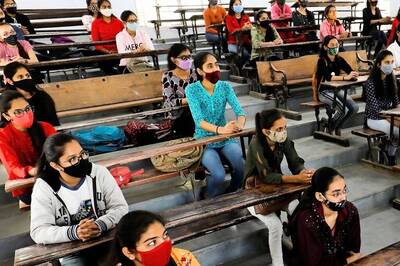
views
Edward Snowden, a former private contractor with the CIA who leaked the controversial US secret surveillance programme, on Sunday made fresh claims about America's cyber espionage against China, including intensive hacking attacks on a top university in Beijing.
The Tsinghua University, widely regarded as China's top education and research institute, was the target of extensive hacking by the US spies this year, Snowden said in his latest claims to the Hong Kong-based South China Morning Post. It is not known how many times the Tsinghua University, which carries out a number of China's research programmes, has been attacked by the US National Security Agency (NSA) but details shown to the Post by Snowden revealed that one of the most recent breaches was as early as in January this year.
The information also showed that the attacks on Tsinghua University were intensive and concerted efforts. In one single day of January, at least 63 computers and servers in Tsinghua University have been hacked by the NSA, the report said.
30-year-old Snowden, who was accused by some of the US officials as a possible Chinese spy, said the information he shared on the Tsinghua University attacks provided evidence of NSA hacking because the specific details of external and internal internet protocol addresses could only have been obtained by hacking or with physical access to the computers. His earlier revelations that NSA carried out several cyber attacks on China was skilfully utilised by Beijing in asserting that that it was a victim of hacker attacks and Snowden's revelations had proved its point.
The new revelations came after a case was filed by the US officials formally charging Snowden with espionage, theft of government data and conveying classified information to unauthorised person. The charges could make it difficult for Hong Kong which is governed by China to deny his extradition on political grounds under their extradition treaty.
Hong Kong in the past extradited wanted US persons mostly in criminal cases and analysts said that the theft clause could make it difficult for the former British colony to deny any US request.
Sensing this, Snowden and his supporters are trying to shift to Iceland where he could get a possible asylum. The Tsinghua University is home to one of China's six major backbone networks, the China Education and Research Network (CERNET) from where internet data from millions of Chinese citizens could be mined.
The network was the country's first internet backbone network and has evolved into the world's largest national research hub. It is one of China's non-commercial networks, owned by the Ministry of Education, but operated and maintained by the university and other colleges.
Universities in Hong Kong and the mainland were revealed as targets of NSA's cyber-snooping activities last week when Snowden claimed the Chinese University of Hong Kong had been a victim of hacking.
The Chinese University is home to the Hong Kong Internet Exchange, the city's central hub for all internet traffic.
Snowden said the NSA was focusing much attention on the so-called "network backbones", through which vast amounts of data passed.
In the wake of Snowden's claims, Chinese Ministry of Foreign Affairs has set up an office to deal with diplomatic activities involving cyber security.
Professor Xu Ke, deputy director of the Institute of Computer Networks at Tsinghua University, has previously said that most data passing through network backbones was not encrypted. Xu said most attacks on such networks were carried out by governments because individual hackers "could gain little", as the amount of information they faced would be "colossal".
Only governments or large organisations would have the resources and manpower to "find the needle in a haystack", the Post quoted him as saying.




















Comments
0 comment